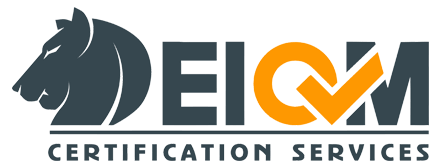ISO 10002 is an international standard specifically designed to help organizations establish and maintain an effective customer complaint handling system. It provides guidelines and best practices for managing complaints, ensuring their prompt resolution, and fostering customer satisfaction.
Key Components of ISO 10002
Customer Complaint Management Policy
The first step in implementing ISO 10002 is developing a comprehensive customer complaint management policy. This policy should outline the organization’s commitment to addressing complaints, defining roles and responsibilities, and ensuring a customer-centric approach.
Complaint Receipt and Acknowledgment
Efficient complaint receipt and acknowledgment processes are crucial to maintaining customer confidence. Establishing multiple channels for complaint submission and promptly acknowledging receipt helps reassure customers that their concerns are being taken seriously.
Complaint Handling Process
ISO 10002 emphasizes the importance of a structured complaint handling process. This includes recording and categorizing complaints, conducting investigations, and assigning appropriate personnel to address each complaint. The process should be transparent, consistent, and ensure timely resolution.
Complaint Resolution and Closure
Resolving complaints to the customer’s satisfaction is a key objective of ISO 10002. Organizations are encouraged to find mutually agreeable solutions, offer compensation when necessary, and keep customers informed throughoutthe resolution process. Each complaint should be closed only after the customer confirms their satisfaction with the resolution.
Complaint Analysis and Continuous Improvement
ISO 10002 promotes a proactive approach to complaint handling by emphasizing complaint analysis and continuous improvement. By analyzing complaint data, organizations can identify recurring issues, root causes, and areas for improvement. This information enables them to implement corrective actions and prevent future complaints.
Benefits of Implementing ISO 10002
Enhanced Customer Satisfaction
Implementing ISO 10002 helps organizations enhance customer satisfaction by ensuring efficient and effective complaint handling. Resolving complaints promptly and to the customer’s satisfaction shows a commitment to customer service excellence, leading to increased loyalty and positive word-of-mouth.
Improved Internal Processes
ISO 10002 implementation requires organizations to establish clear processes for complaint handling. As a result, internal communication and coordination improve, leading to streamlined operations and faster complaint resolution. This optimization positively impacts overall business efficiency.
Strengthened Customer Relationships
When customers feel heard, respected, and satisfied with the resolution of their complaints, trust and loyalty are built. ISO 10002 provides a framework that fosters stronger customer relationships by prioritizing customer feedback and demonstrating a genuine commitment to addressing concerns.
Competitive Advantage
Organizations that adhere to ISO 10002 standards gain a competitive advantage in the marketplace. Customers are more likely to choose a company that demonstrates a structured and customer-centric complaint handling system. ISO 10002 certification serves as a powerful differentiator, showcasing a commitment to exceptional customer service.
Steps to Implement ISO 10002
Assessing Current Complaint Handling Practices
To begin the implementation process, organizations should assess their existing complaint handling practices. This assessment helps identify strengths, weaknesses, and areas that require improvement. It serves as a foundation for developing an effective ISO 10002 compliant system.
Developing a Customer Complaint Management Policy
A robust customer complaint management policy is essential for ISO 10002 implementation. The policy should clearly articulate the organization’s commitment to handling complaints, outline the responsibilities of key stakeholders, and establish procedures for effective complaint resolution.
Establishing a Complaint Handling Process
Organizations must establish a systematic complaint handling process aligned with ISO 10002 guidelines. This process should include steps for complaint registration, investigation, resolution, and closure. It should also specify communication channels, timelines, and escalation procedures.
Training and Awareness Programs
ISO 10002 implementation requires training and awareness programs for employees involved in complaint handling. These programs educate staff about the importance of complaint management, effective communication techniques, and the skills necessary to handle difficult customer situations professionally.
Monitoring and Measuring Complaint Handling Performance
To ensure the effectiveness of ISO 10002 implementation, organizations should establish monitoring and measurement mechanisms. Regularly reviewing complaint handling metrics, such as response time, resolution time, and customer satisfaction, allows for continuous improvement and timely corrective actions.
ISO 10002 Certification
Requirements for Certification
Organizations seeking This certification must meet specific requirements. These include implementing a documented complaint handling system, conducting internal audits, and undergoing external certification audits by accredited bodies. Compliance with ISO 10002 standards is assessed to determine certification eligibility.
Auditing and Evaluation Process
The certification process involves audits and evaluations to assess the organization’s compliance with ISO 10002 requirements. Qualified auditors review complaint handling procedures, documentation, and performance metrics. Successful completion of the audit results in ISO 10002 certification, demonstrating the organization’s commitment to customer satisfaction.
Case Studies: Successful ISO 10002 Implementations
Company A: Streamlining Complaint Resolution
Company A implemented ISO 10002 and experienced significant improvements in complaint resolution. By adopting a structured process, training employees, and leveraging complaint data for process improvements, they reduced complaintresolution time by 30%. This resulted in increased customer satisfaction and improved customer loyalty.
Company B: Enhancing Customer Loyalty
Company B implemented ISO 10002 as part of its customer-centric strategy. By actively listening to customer complaints, addressing them promptly, and providing personalized solutions, they saw a 20% increase in customer retention. The organization’s commitment to resolving complaints effectively helped them build stronger and long-lasting customer relationships.
Overcoming Challenges in Complaint Handling
Dealing with Difficult Customers
Handling difficult customers is a common challenge in complaint management. Organizations can overcome this challenge by training employees in effective communication, active listening, and empathy. By understanding customer perspectives and providing personalized solutions, organizations can de-escalate challenging situations and turn dissatisfied customers into loyal advocates.
Managing Large Volumes of Complaints
Organizations with high customer volumes may face challenges in managing a large number of complaints. Implementing complaint management software or utilizing customer relationship management (CRM) systems can help streamline the process. Automation, categorization, and prioritization of complaints enable efficient handling and timely resolution.
Balancing Efficiency and Personalized Responses
Maintaining a balance between efficiency and personalized responses can be challenging. While organizations aim to resolve complaints quickly, it’s essential to provide personalized attention to each customer. By establishing clear guidelines and empowering employees to make decisions, organizations can strike a balance between efficiency and tailored solutions.
Best Practices for Effective Complaint Handling
Prompt Response and Timely Resolution
Responding to complaints promptly and resolving them within a reasonable timeframe is crucial. Acknowledging complaints immediately and providing regular updates to customers instill confidence in the organization’s commitment to addressing their concerns.
Active Listening and Empathy
Active listening is a fundamental skill in complaint handling. It involves paying attention to customer grievances, understanding their emotions, and empathizing with their experiences. By demonstrating empathy, organizations show customers that their concerns are genuinely valued.
Transparency and Communication
Transparent communication throughout the complaint handling process is essential. Keeping customers informed about the progress of their complaints, explaining the steps being taken, and providing realistic timelines build trust and ensure a positive customer experience.
Learn from Complaints
Complaints offer valuable insights into areas for improvement. Organizations should analyze complaint data, identify patterns, and implement corrective actions to prevent future issues. By using complaints as learning opportunities, organizations can continuously enhance their products, services, and customer satisfaction levels.
Conclusion
Implementing the ISO 10002 customer complaint handling system is a strategic investment for businesses aiming to provide exceptional customer service. By establishing a structured complaint handling process, organizations can effectively address customer grievances, enhance satisfaction levels, and build stronger relationships with their customers. ISO 10002 certification serves as a testament to an organization’s commitment to customer-centricity and continuous improvement.
Contact EIQM
To contact us, please fill out the form below. We will contact you as soon as possible. You can also apply through this form if you would like to receive system certification or representation of EIQM Certification Body.

